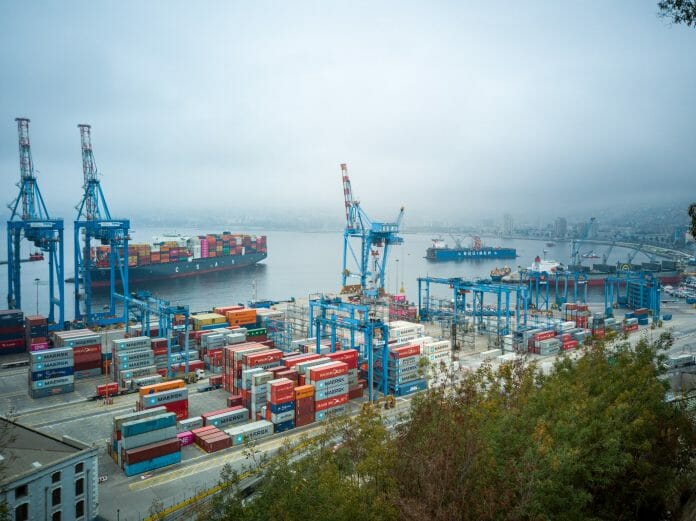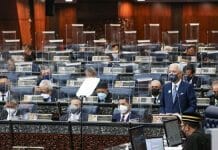By Nazery Khalid,
Nazery Khalid highlights the need to ensure that ship to ship transfer operations in Malaysian waters are carried out safely to avoid incidents that can be detrimental to shipping, the environment and our reputation as a responsible maritime nation
The recent launching of the development of a new high-impact economic corridor, Melaka Waterfront Economic Zone (M-WEZ) by the Melaka state Government brought to attention the safety level of ship-to-ship (STS) transfer activity in Malaysian waters.
Primed to be a main contributor to the state’s economy, the main focus of M-WEZ is to boost the maritime sector as a major economic contributor to the state. Among activities that will be promoted is STS, in addition to container and general cargo ports, cruise and ferry terminals, free-trade zones, logistics hub, oil and gas terminals, ship repair yards.
This came hot off the heels of the announcement in 2019 of another STS transfer project in the Strait of Johor. Billed as the “world’s biggest” STS facility, the project entails building a hub consisting of mooring structures to berth vessels to effect STS transfer on a 1,200 hectare site off the Port of Tanjung Pelepas, one of the world’s busiest container transshipment ports. The project will be spearheaded by KA Petra Sdn Bhd, a maritime services company with Hong Kong-based port operator Hutchison Ports as its partner.
STS essentially involves the transfer of cargos (for example, oil, gas, dry bulk, containers and general cargos) from one ship to another – wile stationery or in motion – without having to berth at ports. The advantages of STS transfer of cargos compared to cargo transfer done at ports are the flexibility and time saving it offers owing to the directness of the process (without involving fixed or permanent infrastructures such as ports and terminals acting as intermediaries).
STS offers huge cost savings to shipowners and cargo owners as they do not have to incur charges imposed at ports to unload and load cargos or to be subjected to more elaborate operational and approval / documentation process.
However, STS operations are fraught with risks due to the high possibility of ships in close proximity colliding and cargos being spilled into the sea. These can cause loss of lives. Injuries, damaged to assets and cargo and pollution, beside disruption of shipping traffic.
With the increase in global seaborne trade and shipping traffic in Malaysian waters – which include Malacca Straits and South China Sea which are strategic sealanes for seaborne transport of cargos – the demand for STS services rises in tandem. Hence, it is not surprising that more companies are entering this potentially lucrative activity, as underlined by the M-WEZ project and the Strait of Johor projects mentioned earlier. Some do not even have any background or expertise in carrying out the complex, challenging task of transferring cargos between vessels that requires adequate assets, trained personnel and meticulous supervision.
This raises fear of incidents that can cause adverse and costly impacts to lives, the marine environment, assets and supply chains.
With shipping traffic growing in the seas surrounding us and with vessel size getting larger as shipowners aims to attain economies of scale, the risk of incidents involving STS operations is heightened. Should an incident causing spillage of dangerous cargo or ships colliding while undertaking STS in the Straits of Malacca, one of the world’s busiest and most strategic shipping lanes, the repercussion to the marine environment and shipping traffic would be severe. Malaysia’s reputation as a maritime hub with good navigation safety would also be dented.
Doing it right
Although equipment to handle oil spills at sea are available in Malaysia, they are stored onshore in containers. No vessel is on standby to be quickly mobilized to respond should an incident occur. It would take time to load the equipment to combat oil spill onboard a vessel to be dispatched to the incident site at sea. This would take precious time that is crucial in quickly preventing the spread of the oil spill.
In this regard, it is very important that the task of managing the response to oil spills arising from STS transfers is given to credible companies with the equipment, personnel and track record in handling such incidents. The company must ensure that the equipment are always well-maintained and tested frequently, and the crew involved are well-trained and closely supervised. It must also carry out regular drills to ensure its personnel are always in a high state of readiness to respond to any incident.
It is crucial that maritime regulatory authorities closely monitor shipping companies involved in STS operations to ensure that they have the necessary equipment, personnel and capability to carry out emergency response to incidents. The price to pay for the marine environment and Malaysia’s reputation as a maritime nation would be high should large vessels carrying dangerous and hazardous cargos such as crude oil or chemicals.
The port state authority must quickly come down hard on companies carrying out unauthorized STS operations to avoid any untoward incidents resulting from sloppy operations, inadequate equipment, and poorly trained and supervised crew.
The regulations of STS transfer activities must be aligned with international best practices in this field, not only operationally but in other areas such as approval, insurance / liability coverage and HSE (health, safety and environment). As a member of the prestigious Council and International Maritime Organization (IMO), the United Nations body overseeing safe shipping and clean oceans, Malaysia must ensure all shipping and maritime activities carried out in its waters adhere to and comply with international conventions and regulations on STS transfer guide and operational plans, and globally-accepted technical standards and specifications.
Last but not least, maritime security agencies must also continue to keep a close watch and step up surveillance on illegal STS transfer activities in our waters. In this regard, a bigger budget allocation for Malaysia Maritime Enforcement Agency to procure more modern assets to better safeguard our maritime zone would not hurt one bit.
The stakes are high for the country’s shipping sector, marine environment and reputation should a major incident occur due to a botched STS transfer operation. As such, the stakeholders in shipping in Malaysia must pull all the stops to ensure STS transfer operations in Malaysia are carried out safely, responsibly, in an environmentally friendly manner and in full adherence to all rules, regulations and standards governing the activity.
The author wishes all Business Today readers Selamat Hari Raya Aidil Fitri and Eid Mubarak. He can be contacted at [email protected]









